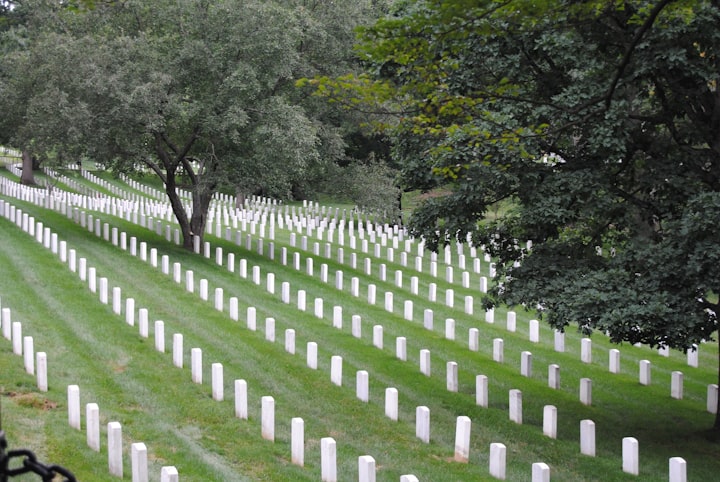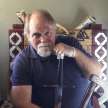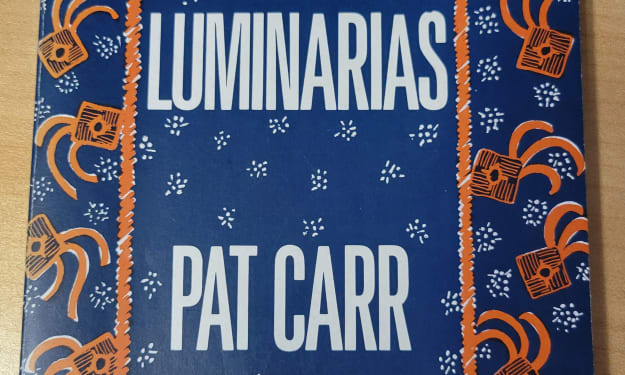
Every year, Texas A&M University-Corpus Christi, my employer, does something called “Giving Tuesday,” where employees are encouraged to go out and do service in the community. This year, I was assigned to the Coastal Bend State Veteran’s Cemetery. My assignment was to, quite literally, wash the bird poop off of veterans’ headstones. I was given a sponge, a bucket of soapy water, dishwashing gloves, and was assigned a section to wash.
Washing someone’s tombstone is an oddly personal thing. A human being’s body is there, in its final resting place, and the headstone has the veteran’s birth and death dates, what service they were in, and then some sort of personal inscription. If they were religious, there’s some sort of emblem—a cross or a star of David. The headstone is a summary of someone’s life in a nutshell; if nothing else, it shouldn’t be covered in bird poop.
For every stone I washed, I paused and said the person’s whole name aloud: “David Cantu” or “Ronald Gene Ballmer” or “Antonio Garza” and the branch of service they were: US Navy, or Marines, or Army. If they were Navy (the branch I served in), I said something like “Here you go, shipmate,” as I began washing their headstone. Saying their name out loud sounds silly, and it probably was, but I felt the need to acknowledge that these stones represented people who lived, who were loved, and who served their country.
The headstones began to tell their own stories. In one small section that I cleaned, there were three people who all had been over 100 when they died. One, a Lieutenant Colonel, had served in World War II, Korea, and Vietnam. Others had served in Afghanistan, Iraq, or the First Gulf War. Some, based on the rank on their headstones, had served one term and then had gotten out of the service to live long civilian lives. Others had been retirees.
Veterans’ cemeteries are organized based on the day the veteran died—that’s often the only common denominator in a section of the cemetery—everybody in this section died in July 2023, for example. The more headstones I washed, the more I noticed how long people had lived. I mostly worked in the 2020s section, so most of the veterans whose tombstones I washed were born in the 1940s, so they’d lived eighty years, or close to it. There was the occasional person who’d been born in the 1930s, making them close to ninety, and, a very few who’d been born in the 1920s. Then, I began noticing people born in the 1950s, who’d barely made it to 70, or close to it. I also noted a few born in the 60s, the same decade I was born in; it felt weird to be washing the tombs of people who’d be younger than I am if they were still alive.
Many of the veterans had been buried with their spouses—usually wives, but occasionally husbands and, in one case, a same-sex spouse. When that happened, the spouse’s name was on the back of the tombstone, and the veteran’s was on the front. Both are in the same grave; the more recently deceased person is buried on top of the other one. In graves such as these, there were often phrases like “Together forever” or “Ellas estarán juntas por siempre” (They will be together forever) or “reunited at last.” I found these sentiments to be sweet and moving; I find the thought of spending eternity resting with Diana, my spouse, to be comforting.
As I scrubbed bird poop and scoured dirt away, I began to notice other things. Often, there were phrases describing the veteran, “loving mother and grandmothers” or “loving father and proud American.” Other times, there were tributes, like “He was filled with kindness” or “She will be missed.” Sometimes there were service-related slogans—one Air Force veteran had an inscription that read, “Flying with the eagles.” Because I have the humor of a twelve-year-old, as a Navy vet, I wondered if mine should read “Swimming with the fishes.” Then, later, when I cleaned the tombstone of a retired Navy commander which read “Sailing free,” which I liked a whole lot. Maybe I’ll ask that “Sailing free” be placed on my tombstone (although I’m still leaning toward, “Lighten up—it’s just a grave!”).
My humor evaporated when I washed the headstone of a man born in 1996 who’d only lived until he was 25. He was younger than two of my children, and would be if he were still alive. Somehow cleaning the grave of someone younger than my boys hit me like a ton of bricks. It made me think of my two sons. I don’t know how this young man died, but the dates made me think it had happened while he was on active duty.
None of this prepared me for the last section I cleaned. It was in another part of the cemetery, cleaning the tombstones of people who’d died ten or eleven years ago. These were slightly different—narrower than the headstones in the newer section, the lettering a little bit different. I dunked my sponge in the water, scrubbed the bird poop off the top, then stood to read the name off the headstone, as I’d done for the hundred or so other graves I’d cleaned. “R…..I know this guy. Knew this guy,” I said to no one in particular. Someone in a row near mine looked up. “This is one of my former students,” I explained.
I remembered Ryan; I had him in a summer school class not long after he’d retired from the Navy. Big, strong, suntanned, with a long list of plans for the future. Looking at the date he was buried—2013—he must have died not too long after he was my student. The fact that we were both ex-Navy had been a bond; we’d chatted a fair amount, and, when he was in my class, I got to know him a bit better than I do many of my students. We’d lost touch once the class ended, and I hadn’t known he’d died.
I didn’t know what to feel. Sad that Ryan had died, guilty that I hadn’t known he’d passed, a little foolish that I was grieving a death that happened more than a death ago.
I did the only thing I could think to do. I cleaned Ryan’s grave carefully, spending a bit more time than I had on the others, said, “There you go, ship mate.” Then I went to the grave next to his, dunked the sponge in my bucket of suds, and began washing that veteran’s grave, too.
About the Creator
Chuck Etheridge
Novelist, Teacher, Transplanted West Texan, Reluctant Poet
Enjoyed the story? Support the Creator.
Subscribe for free to receive all their stories in your feed. You could also pledge your support or give them a one-off tip, letting them know you appreciate their work.






Comments
There are no comments for this story
Be the first to respond and start the conversation.